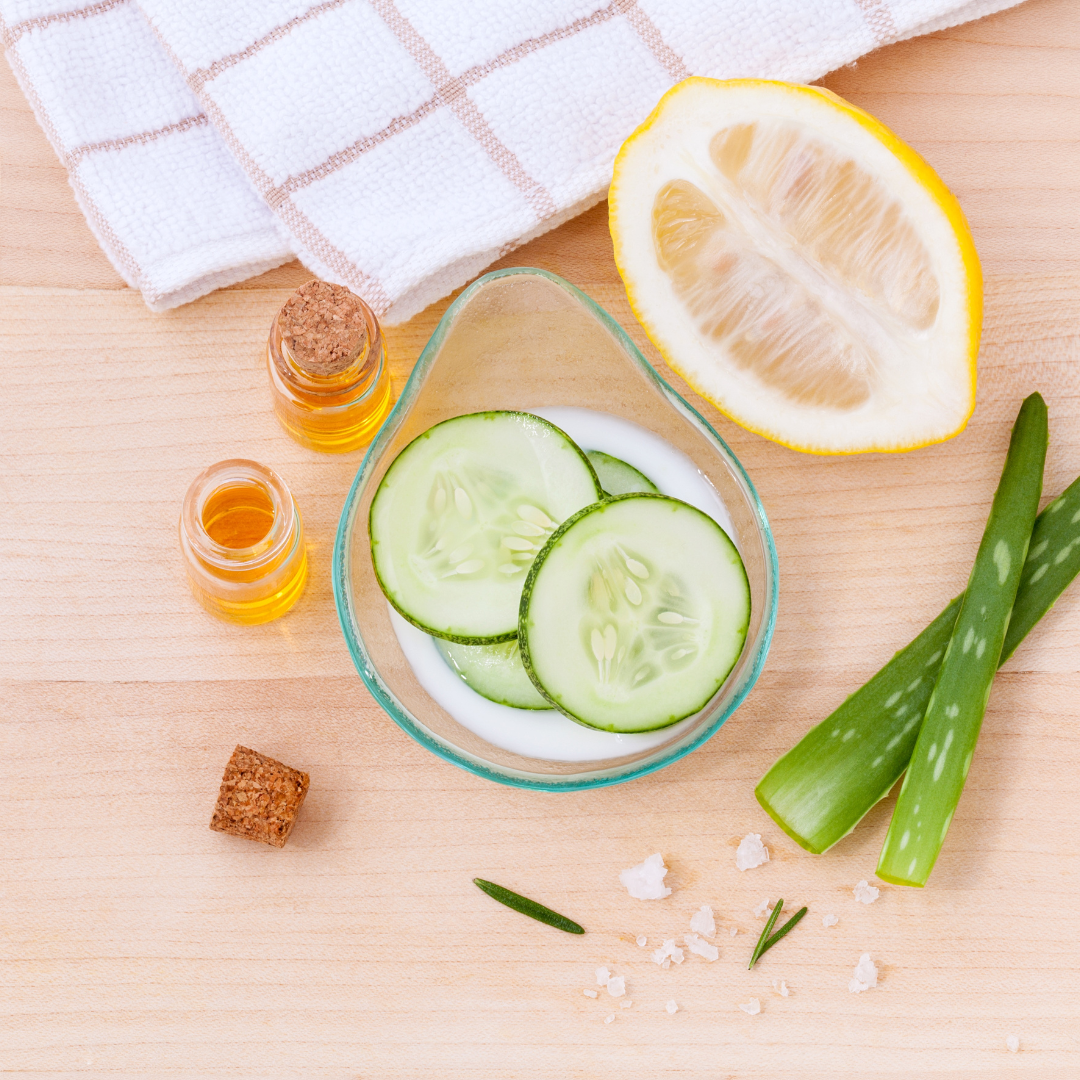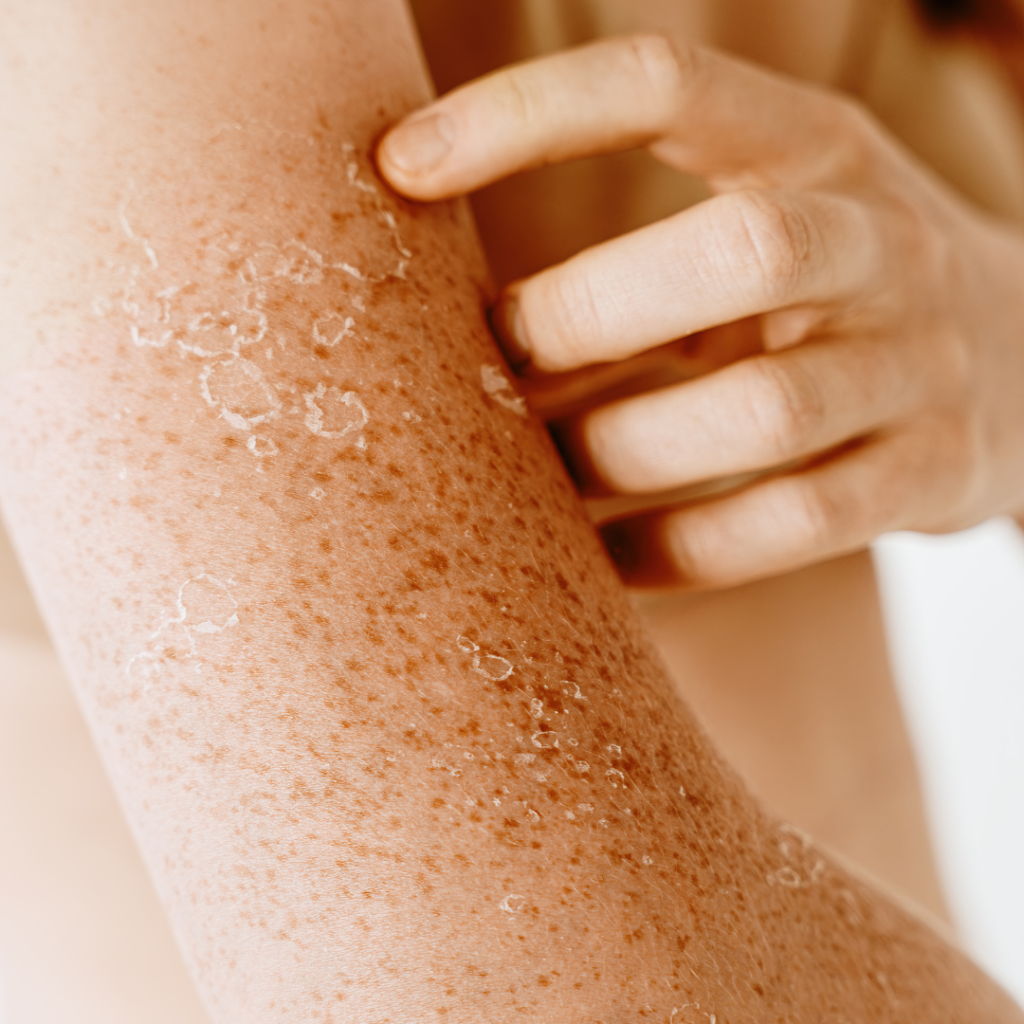Table of Contents
ToggleHow to Treat Sensitive Skin Naturally at Home
Mandy March 28, 2025 12min read
Contributors: Naveen, Susheela, and manoj

Having sensitive skin can feel like walking on a tightrope. One wrong skincare product or environmental trigger, and your skin flares up with redness, itching, or breakouts. But what exactly is sensitive skin, and why does it react so easily?

What is Sensitive Skin?
Sensitive skin is a condition where your skin reacts strongly to certain ingredients, weather changes, or even stress. It often feels tight, burns easily, and can develop redness or rashes when exposed to harsh chemicals or allergens.
Common Symptoms and Triggers
Redness and irritation after using skincare products
Itchiness or a burning sensation
Dry patches or flakiness
Sensitivity to fragrances and artificial dyes
Breakouts caused by certain ingredients
Causes of Skin Sensitivity
Harsh skincare products with alcohol or synthetic fragrances
Environmental factors like pollution and UV exposure
Underlying skin conditions such as eczema or rosacea
Frequent use of hot water on the skin
Poor diet lacking essential nutrients for skin health
Essential Skincare Routine for Sensitive Skin
If you have sensitive skin, sticking to a gentle, natural skincare routine is key. Here’s how you can build one:
Gentle Cleansing: Choosing the Right Face Wash
Look for sulfate-free, fragrance-free, and alcohol-free cleansers. Ingredients like aloe vera, chamomile, and green tea help cleanse without stripping natural oils. Avoid foam cleansers as they can be too harsh.
Hydration and Moisturizing Tips
Use a lightweight, non-comedogenic moisturizer with ingredients like hyaluronic acid, shea butter, or jojoba oil. Hydration is essential to maintain the skin barrier and prevent irritation.
Sun Protection for Delicate Skin
Sunscreen is non-negotiable. Opt for a physical (mineral) sunscreen with zinc oxide or titanium dioxide instead of chemical sunscreens, which can cause irritation.
Natural Remedies for Soothing Sensitive Skin
Going natural is often the best way to calm and nourish sensitive skin. Here are some tried-and-tested home remedies:
Aloe Vera: A Natural Healer
Aloe vera gel is packed with antioxidants and anti-inflammatory properties, making it an excellent remedy for redness and irritation. Apply fresh aloe vera gel directly to the skin and leave it on for 15–20 minutes before rinsing.
Oatmeal Masks for Skin Relief
Oatmeal is rich in soothing properties that help calm inflammation. Mix finely ground oatmeal with honey and a little water to make a calming face mask.
Coconut Oil and Its Soothing Properties
If your skin is dry and flaky, coconut oil can work as an excellent natural moisturizer. However, if you’re acne-prone, use it sparingly as it can clog pores.
Rose Water for Cooling Inflammation
Rose water has natural anti-inflammatory properties that reduce redness and irritation. Spritz rose water on your face as a toner or mix it with aloe vera for an ultra-soothing remedy.
Lifestyle and Dietary Adjustments for Healthy Skin
Your skincare routine isn’t the only thing that matters. Your diet and lifestyle choices play a huge role in maintaining skin health.
Best Foods for Sensitive Skin Health
Omega-3-rich foods: Salmon, walnuts, and flaxseeds help reduce inflammation.
Antioxidant-rich foods: Berries, spinach, and green tea protect the skin from oxidative stress.
Hydrating foods: Cucumbers, watermelon, and oranges help maintain skin hydration.
Hydration and Its Role in Skin Nourishment
Drink at least 8 glasses of water a day to keep your skin hydrated and flush out toxins.
Avoiding Common Irritants in Skincare Products
Stay away from alcohol-based toners and cleansers.
Skip heavily fragranced products.
Choose hypoallergenic skincare brands.
DIY Skincare Recipes for Sensitive Skin
If you love DIY skincare, here are some simple recipes you can make at home:
Homemade Face Mask for Sensitive Skin
Ingredients:
2 tbsp yogurt
1 tbsp honey
½ mashed banana
Method: Mix all ingredients and apply to your face for 15 minutes before rinsing. This mask hydrates and calms irritated skin.
Natural Toner for Sensitive Skin
Ingredients:
½ cup rose water
1 tbsp aloe vera gel
Method: Mix and store in a spray bottle. Use it as a daily toner.
Simple, Chemical-Free Exfoliator
Ingredients:
1 tbsp finely ground oatmeal
1 tbsp honey
Method: Gently massage onto the skin in circular motions, then rinse with lukewarm water.
Mistakes to Avoid When Caring for Sensitive Skin
Many people unknowingly make mistakes that worsen their sensitive skin. Here’s what to avoid:
Over-Exfoliation and Harsh Scrubbing
Scrubbing too often can damage your skin barrier. Stick to gentle exfoliation once a week with mild ingredients like oatmeal or rice flour.
Using the Wrong Skincare Ingredients
Avoid skincare products with alcohol, parabens, artificial fragrances, and sulfates. Always read labels before buying.
Ignoring Patch Tests for New Products
Before trying any new skincare product, always do a patch test on your wrist or behind your ear to check for allergic reactions.
Final Thoughts
Sensitive skin requires patience and care. By following a natural skincare routine, using soothing home remedies, and making lifestyle adjustments, you can keep irritation at bay and achieve healthier, happier skin. Remember, consistency is key, and your skin will thank you for the gentle care you provide!
If you found these tips helpful, share them with someone who struggles with sensitive skin. Have any favorite natural remedies? Drop them in the comments!
